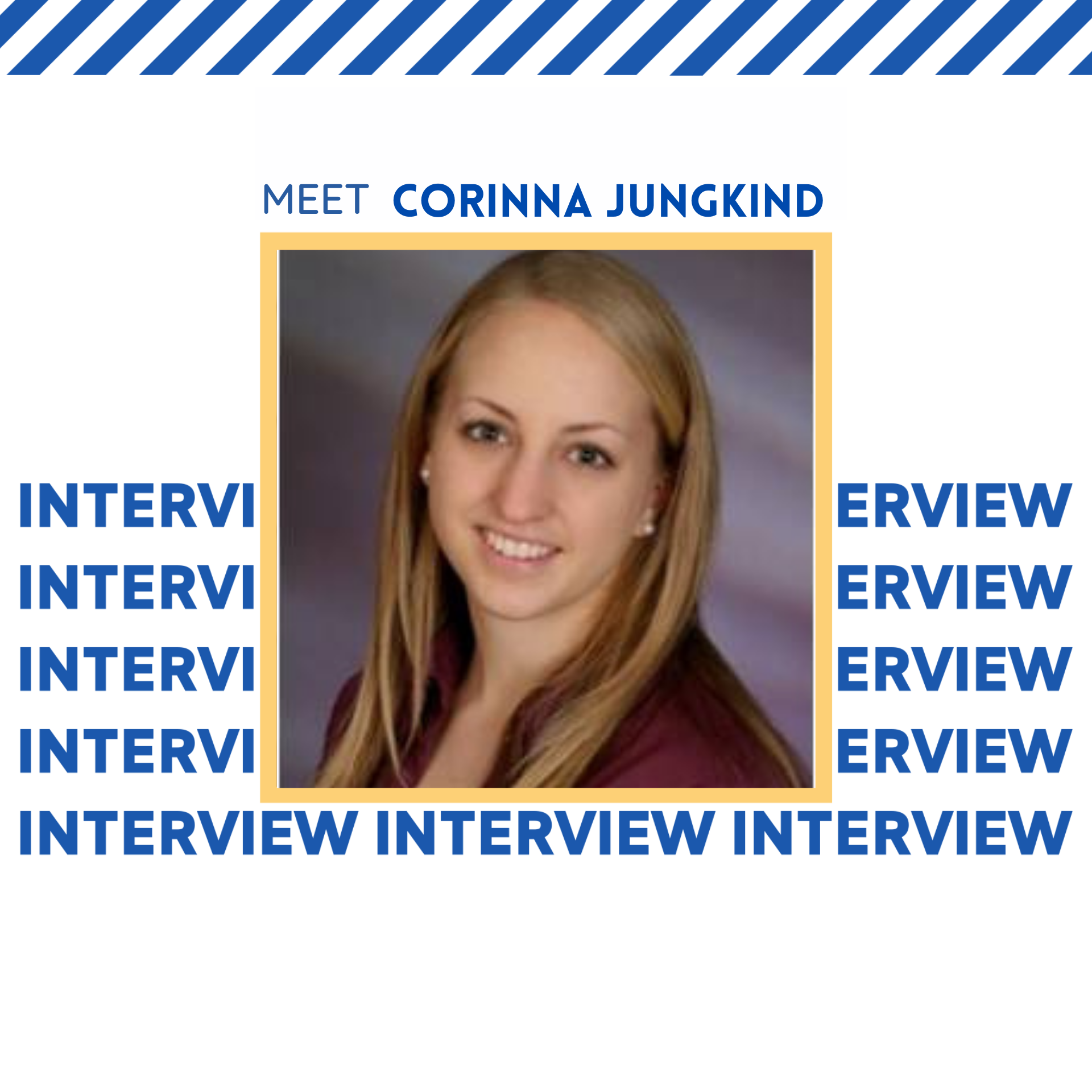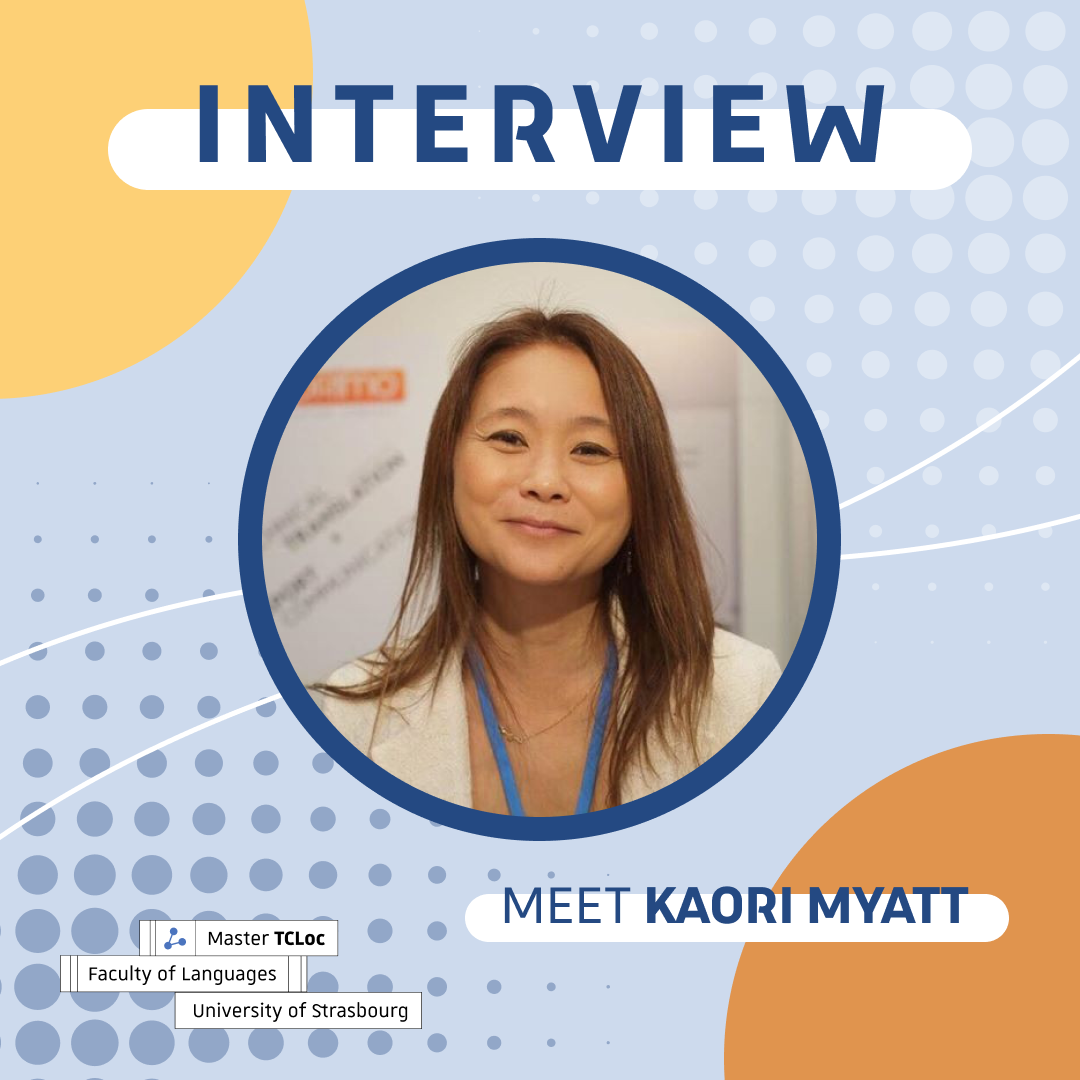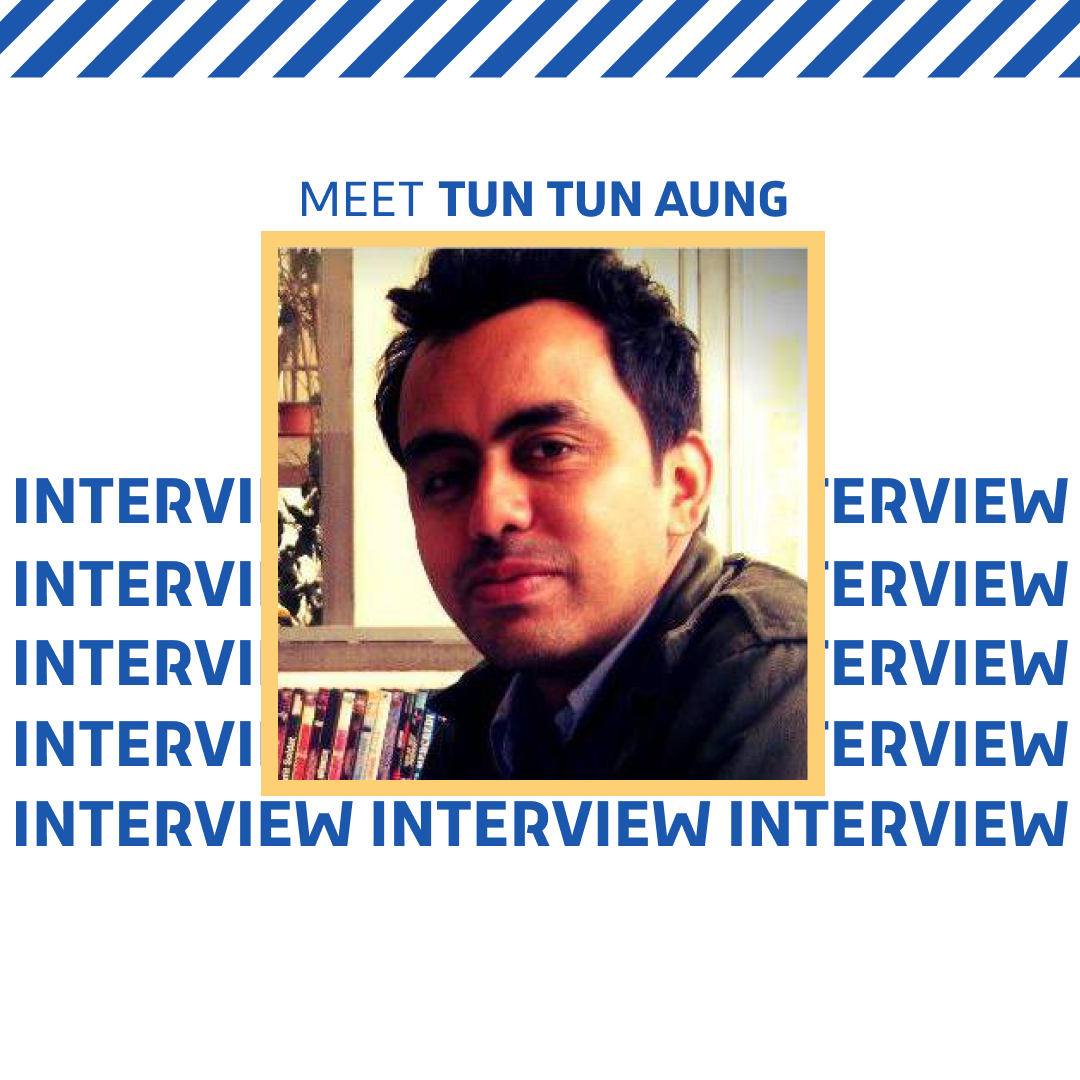We talk to Corinna Jungkind about going back to school to study technical communication.
Reading time: 13 minutes
Let’s Meet Corinna
Hi Corinna! Can you start by introducing yourself?
Of course. My name is Corinna, I’m 32 years old, and I’m from Germany. I’ve always lived here, except for a couple of months during my studies. After finishing high school, I did an apprenticeship as an IT management assistant – it’s like a clerk who works in the office, but also has a little bit of an IT background. I also learned some programming skills and things like how to set up a network. That was from 2009 to 2012. After that, the company I did the apprenticeship with couldn’t offer jobs. So I decided that I was going back to school to continue studying.
I did my bachelor’s degree in international business administration and foreign trade because I have always liked managing and organizing things in the office. But I also love the international part of it, working alongside colleagues from subsidiaries all over the world. So I decided to do international studies. It was an international bachelor’s degree, based in Germany but including one semester abroad. I spent that semester in London doing an internship. I’d already done another month abroad in Plymouth, England for a separate internship during my apprenticeship.
I really liked working with people from across the world, especially in London, where I had colleagues from countries like China and Spain.
Did you apply for a master’s immediately after your bachelor’s?
After my bachelor’s degree I thought about going back to school to do a master’s straight away, but then I decided I wanted to work and earn money. So I looked for a job. The first one I found was a clerk’s job, and I didn’t enjoy it much, so I changed after a year. I moved to another company and started working in technical communication. Before that, I had no idea what technical communication was about.
Going Back to School to Study Technical Communication: Discovering TCLoc
How did you find out about TCLoc?
Shortly after I started as a team assistant, I was really enjoying working in the technical communication field and my boss asked me if I was interested in doing an extra training program on weekends, alongside my job. It took half a year, and after that I became a technical writer so I could create documentation. I enjoyed that a lot. It was during this training that I discovered the TCLoc program.
During this particular training, some other students talked about a master’s degree that you could also do alongside your work, which belonged to the technical communication field. So, once I became a technical writer, I remembered what they told me and thought: yes, maybe I could do go back to school and do my master’s degree alongside my job, which would allow me to work, earn money, and still get my degree. Two years ago, I decided to apply for TCLoc and it has all been worth it. It has been a wonderful experience.
When it came to choosing TCLoc, did you manage to get all of the information you needed?
Yes. I think the TCLoc website is very good, I found a lot of information there. I also wrote an e-mail to the TCLoc team to ask a few questions about what the degree involved and what the program was like. They answered immediately and were very helpful. For the registration fee, I asked my employer. They paid half and I paid the other half. That was fine as I had some money saved up. I did find another master’s in technical communication based in Austria that I could do alongside my job, but it was more expensive. I feel like the fees for TCLoc are really fair.
Are there any particularities about studying in France as an international student?
Something that worried me a bit was that the website says that you need 240 credits from your bachelor’s degree to apply for TCLoc, but I only received 210 from my bachelor’s degree. This meant that I had to apply for something called a VAP (validation des acquis professionnels) to have my professional experience validated. I was a bit worried about this process, but Renate De La Paix, the program director, helped me a lot.
Then, I had some concerns about the university being French-speaking. I learned French at school, but I’m not very good at it. It sounds beautiful, but I think it’s such a difficult language. In the end, everything was in English, so it all went perfectly well.
Going Back to School: Striking a Balance between Work and Study
How did you manage to reconcile your studies with your private and professional life after making the decision to go back to school?
What helped to be honest was the pandemic (laughs). There wasn’t much to do in my personal time, no parties to go to or anything like that. And I just said to myself: well I have the time, let’s just do it and be done with it. But it was still a lot of work. Before starting the program, I was working full time.
The working week in Germany is 37 hours, right?
Yes. So, in Germany you usually work 35 to 40 hours for a full time job. I was working 37, but I reduced this after a while because I felt like it was a bit overwhelming. Now, I work 32 hours per week and it helps a lot. I always try to start working early in the morning, and then I can stop at around 2 pm. What I always like to do between finishing work and doing some studying is going to the gym or for a run to clear my head. That was a schedule that worked for me: working, then having a little break with sports or something, getting a walk or some fresh air, and then studying. I could have done more on the weekends, but I often met my friends and my family on Saturdays and Sundays.
Oh, and I didn’t do many extracurricular courses, the ones that weren’t graded. There was one about video localization, for instance. I feel like I’d like to take them after my thesis defense. Check it out and try to get something out of that too, because TCLoc offers many opportunities. That’s part of what I appreciated about TCLoc: it is very hands-on. It’s not about learning things by heart, it’s about actually doing them. It’s really practical, and in my opinion, that’s the best way to learn.
Sounds like you did a great job of balancing everything! Any other tips?
If anyone out there is thinking of going back to school, I’d definitely recommend TCLoc. It’s a great experience and it’s hard, but it’s doable. So, if you really want to do it, you can do it.
An Online Program with an International Outlook
What was it like meeting teachers and students from all over the world? What was it like interacting with them and the faculty members?
I think meeting people from all over the world was the best thing. For project management, I did a project with one girl from Germany and one who was from the United States but lived in France. There was also a guy living in Brazil and another who was from Africa but lived in Dubai. So it was pretty cool to talk to all of them. Our main communication tool was WhatsApp, as we were in different time zones. It was really interesting to meet people from different cultures and see how different they are. We could also distribute work and balance things out according to our availability, personalities, interests and cultural background. I think companies should see international teams as an opportunity, and make it a strength.
What Can You Learn from the TCLoc Program?
Can you tell us what else this program brought you – new skills, opportunities?
Well, I’m still working the same job that I had when I started TCLoc, which is technical writing for a company in the drive engineering sector. I talked to my boss about it because I would like to take on more responsibility . We already started with changing my tasks a bit. Before TCLoc, I was doing technical writing only. My colleagues, who are engineers, were telling me what to write. Now I’ve become the contact person for some of our international subsidiaries when they have questions about technical communication, they come to me and I help them.
My boss really appreciates what I do with everything I’ve learned from TCLoc, and I hope that it continues that way. So, at the moment, I’m not thinking about looking for a new job. There’s something else that my employer is currently doing: they set up an app, not so long ago, where our customers can get the technical information they need to replace the usual printed book or manual. My boss told me that perhaps I could join the writing team for the app, which I think is a pretty amazing opportunity.
That leads nicely into our next question: TCLoc has a course on app localization, doesn’t it?
Exactly, mobile app localization was something I learned during TCLoc. That was one of the courses that covered topics I’d never seen before. I learned a lot. We used a tool called Android Studio where Android apps are actually programmed. We really went into the code and analyzed it. At the end, we had to tell our instructor whether or not the code was good for localization.
It reminds me of other courses that also taught me a lot, such as the visual communication course where we learned Photoshop, Illustrator, and InDesign. I use Illustrator in the office quite a bit, but not that much. So, I really learned a lot from the instructor, Boris Epp.
The content strategy course, where you learn how to organize content, was also pretty good in my opinion. I also enjoyed the user experience (UX) and usability design course, where we learned to look closely at how customers think so that your product adapts to them. Most of the courses on TCLoc were about subjects that were new to me, which I thought was great.
Did you notice any differences between France and Germany in terms of class content and how people approach their studies?
The most obvious thing was the difference between the French and German grading systems. In Germany, we have grades 1 to 6, with 1 being the best. In France, the best grade is 20, which is a bit confusing. Also, people have always told me that you cannot really get a 20 and that if you do, you are really, really good. Whereas in Germany, it is totally possible to get a 1. This is just something you have to get used to, but everything turned out well. Another difference is that the course was much more practically oriented than my bachelor’s degree in Germany. However, I don’t know if that’s because it’s a French program, or just the fact that it was designed to be done online and combined with work.
Is there any advice you would give to a potential candidate? For example, for someone going back to school after being immersed in the world of work, how do you get back into the habit of studying?
I think one really important thing is that you choose a program that you are interested in. When I decided to go back to school and apply to TCLoc, I had reached a point in my life where I knew I liked technical communication. At the beginning, it’s kind of weird to learn again and work at the same time. Before starting TCLoc, I would come back home from work and have nothing I had to do. I could do whatever I wanted. But now I’m wondering: what am I going to do on my weekends in March when TCLoc is over? (laughs).
What I always do to organize my days: I use the calendar, notes and reminders apps on my iPhone. I literally put everything in there, every meeting we had, every task I had to do. I think the most important thing is to be organized and find something interesting, something that you like.
Do you have any advice for people who fear they may not succeed? What happens when you get disappointing results, even after putting so much effort in?
I didn’t fail any of my courses. I also never failed any courses during my bachelor’s. But I think sometimes you just get a grade that’s not the best and you’re disappointed. Just try to make the best out of it. It happens, so just try to do a better job next time. I had this one task in project management where I didn’t do as well as I’d hoped. So I emailed the professor and he gave me some advice on what I could have done better. It turned out I hadn’t read all the instructions. My advice would be to read things properly and then just follow the steps.
So you’d say the instructors are quite responsive?
Yes, the instructors are all great. You can ask them questions at any time and they will give you the answer.
Thank you very much Corinna! We wish you all the best, and we hope this will inspire future students as much as you’ve inspired us today.
That sums up our interview with Corinna. We’d like to leave you with a couple of her favorite quotes: “Differences of habit and language are nothing at all if our aims are identical” – very apt considering TCLoc’s highly international outlook. And “anything’s possible if you’ve got enough nerve” – for anyone thinking of going back to school and wondering whether it’s feasible to combine studying with full-time work. We hope you enjoyed Corinna’s insights as much as we did.
Interview performed by Céline Sellier and Olga Malosh
Transcribed and edited by Céline Sellier Lisa Krill and Matthew Dykes



